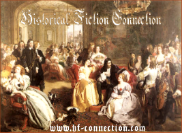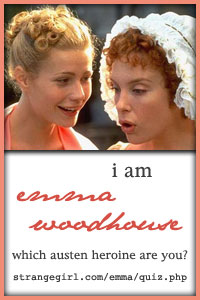
Historical Fiction Virtual Book Tours is celebrating the new release by Anne Easter Smith Queen by Right and I was honored to have the author supply a guest post on the main character in this novel, Cecily Neville!
I have been intrigued by Cecily Neville since enjoying Sharon Kay Penman’s Sunne in Splendour almost twenty years ago. She never appeared in my first book, A Rose for the Crown, but you could almost imagine her imposing presence every time I mentioned her. Some of my favorite scenes in Daughter of York were between Margaret and her mother, and it occurred to me that after three books describing the lives of her children and grandchildren, that I should go back to the beginning of the York family in the Wars of the Roses and tell their parents’ story.
The Hundred Years War between England and France was still raging when Cecily Neville was born at Raby Castle in County Durham. Dubbed “the Rose of Raby,” Cecily is the twenty-second and youngest child of Ralph Neville, the powerful Earl of Westmorland, and also cousin to the boy king, Henry VI. Cecily’s fate becomes entwined with the king’s when she is betrothed to her father’s ward, Richard Plantagenet, the orphaned duke of York, whose claim to the throne is arguably stronger than young Henry’s.
Believe it or not, there is very little written about Cecily that is not incorporated in biographies of the men of the period, but most of those portray her as proud, intelligent, and strong-willed. The second nickname that has come to be associated with her is Proud Cis. She was known for her reclusiveness and piety in the last 20 years of her life, and so I have tried to imagine what caused her to shut herself away. True, it was quite common for widows to retire to an abbey (like Elizabeth Woodville), but I chose to use a few life-changing experiences of Cecily’s that might have made her turn to God later in her life. I hope I have been true to the information we have about her.
I never did find the origin of either of her nicknames, but they are everywhere in the secondary sources down the centuries. It told me that Cecily must have been very beautiful, and it also told me she was not someone who suffered fools gladly. I have tried to show that she had a public side where she maintained a cool and aloof exterior and a softer yet passionate side when she was with her family. Unfortunately the personal feelings of most of historical people from that time are not recorded anywhere, except in letters, and even those are stilted and formal to our way of thinking. But it is believed by historians that Cecily and Richard had one of the few love matches among the nobility of the 15th century, and I tried to find reasons for this in my research. The fact that Cecily did insist on following Richard around so much instead of staying meekly at home with the children told me that they enjoyed being together. I also thought it was unusual for a wife to plead personally on behalf of her husband to the king on two occasions, which showed me how devoted she was. And when Richard landed in Wales after almost a year of exile in Ireland in1460, he immediately called for Cecily to join him even though the king’s forces were attempting to thwart Richard’s progress towards London and it could have been dangerous. It seemed to me husband and wife could not bear to be parted a moment longer, and Cecily joined him only a few days later leaving her children in London.
I try and stay true to those known facts about a character, and it is known Cecily was quite pious especially later in life. However, it is fair to say most medieval people of any learning did a lot of praying and were always concerned for their immortal souls. A man might commit adultery or order a murder one moment but be at the confessional the next being given a penance and telling his rosary. Religious ritual was a daily part of everyone’s life. Because it is a known fact about Cecily, I used the spiritual side of her life as a theme in the book.
For more information please visit Anne Easter Smith’s WEBSITE and FACEBOOK PAGE.
Thank you again to Anne Easter Smith for her post! I can not wait to read this newest story about the York family!























Wow, she really is a fascinating woman! I am always enamored by women who lived during this time but refused to limit themselves in action or learning. I can't wait to read this book!
ReplyDeleteWhat a lovely and insightful guest post! I just finished this novel and, like her others, it is a beautiful work of art.
ReplyDelete